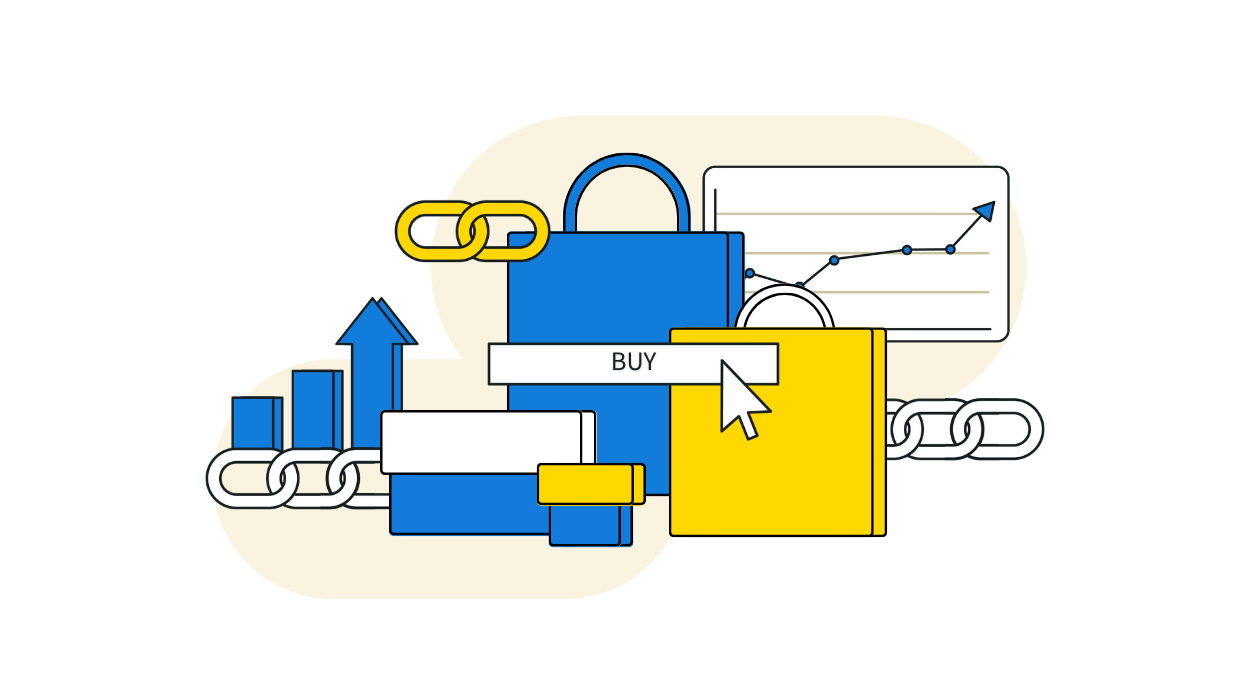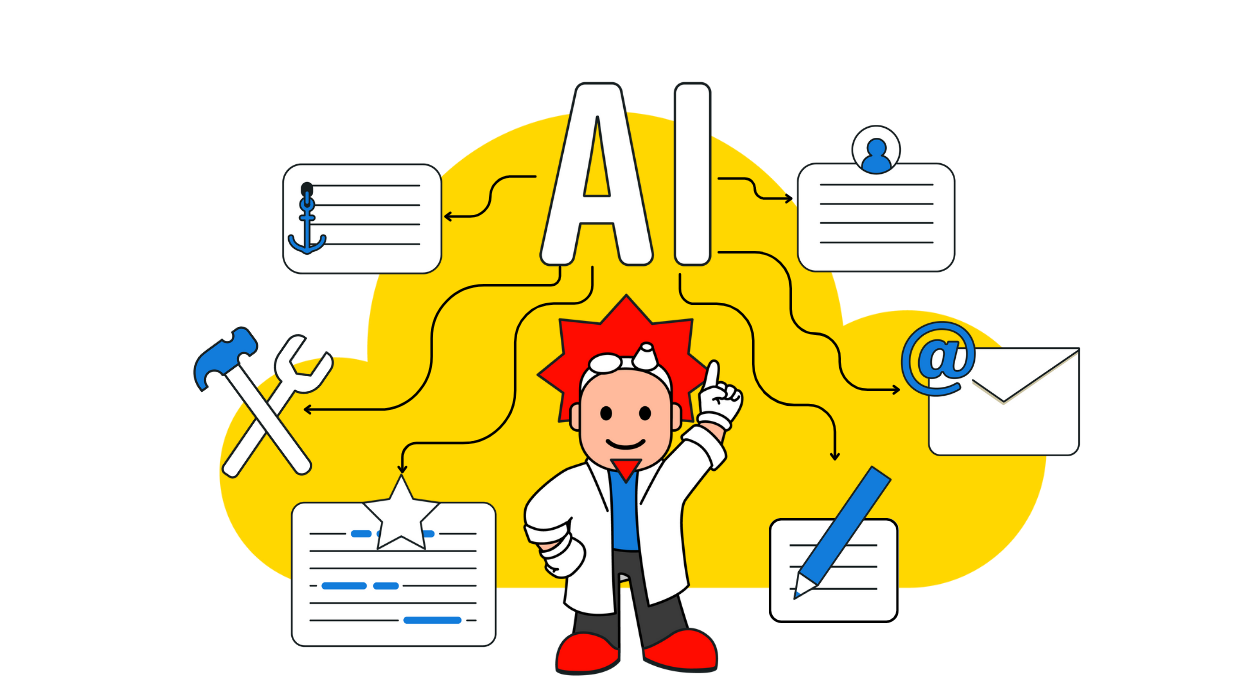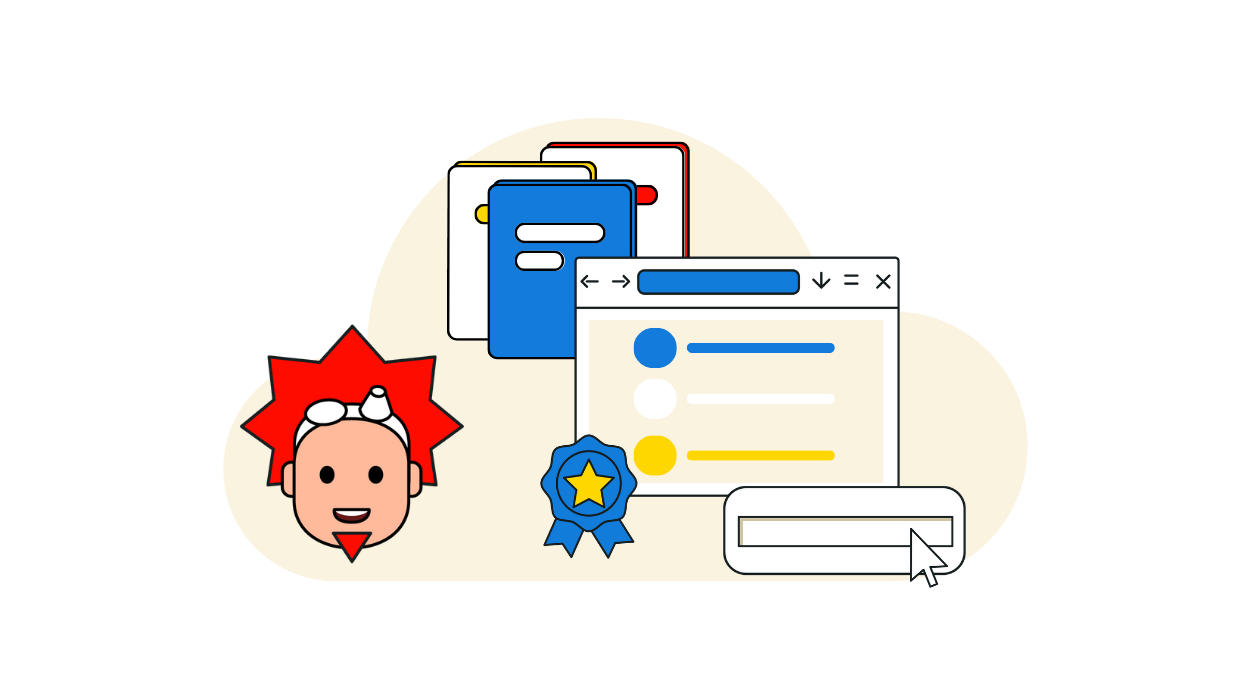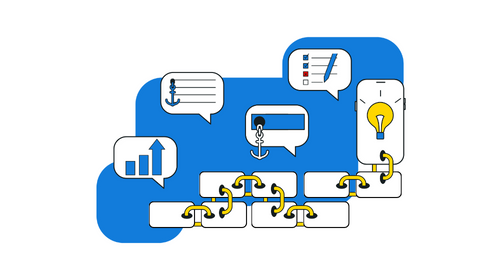It's a real jungle out there for ecommerce businesses as they struggle for survival amidst competition online. For every 100 people who visit your website, only 2 of them make a purchase. And 2% conversion rate is a pretty low figure.
To succeed in this digital arena, ecommerce businesses must establish a solid online presence and visibility.
One important aspect of this is ecommerce link building.
Ecommerce businesses, like any other type of online business, need link-building to improve their search engine rankings and attract more organic traffic to their websites. Link building is the process of acquiring links from other websites that direct to your website.
This venture helps businesses to rank higher in search engine results pages (SERPs) for specific keywords related to their products or services. This, in turn, can drive more qualified traffic to their site and boosts their sales figures.
Before You Pursue Links: Formulate a Link Building Plan
Before you start pursuing links for your ecommerce website, it's crucial to have a clear plan in place. This plan should include your goals, target audience, and target keywords, as well as a timeline for your link-building activities.
Having a plan in place will help you focus your efforts and ensure that your link-building activities align with your overall marketing and business goals.
If you still think entering the link-building arena willy-nilly will be of any use, here are a few reasons to back up the claim that having a plan in place is not up for debate.
Here are a few reasons why making a link-building plan is vital for ecommerce websites:
Identify Your Target Audience
Knowing your target audience is crucial when it comes to ecommerce link-building. A plan helps you identify the types of websites and online publications your target audience is likely to visit, which can help you tailor your link-building strategies according to your business.
Set Achievable Goals
Setting specific and achievable goals is essential when it comes to link-building. A link-building plan helps you to identify your goals, such as increasing your search engine rankings or driving more traffic to your site. And then, you can proceed to create a roadmap for achieving those goals.
Prioritize Your Link-Building Efforts
There are many ways to acquire links, but not all will be equally effective for your ecommerce business. A link-building plan helps you prioritize your link-building efforts by identifying the strategies most likely to help you achieve your goals.
Track Your Progress
A link-building plan helps you track your progress over time and identify which strategies are working and which need to be adjusted. By regularly monitoring your link-building efforts, you can make data-driven decisions and optimize your strategy for maximum impact.
Now if you are convinced with these reasons, let us go about some of the actionable routes to actually achieve a link profile for your website.
Types of Ecommerce Pages to Consider for Link building
Different pages on an ecommerce website may require different types of link-building approaches based on various factors, such as the type of products being sold, the target audience, and the overall goals of the website.
Here are a few examples of how different pages on an ecommerce website may require different link-building strategies:
Homepage: The homepage is the first page most visitors see on an ecommerce website. Link-building strategies for the homepage include building links from high-authority industry publications, reaching out to influencers in your industry, and creating high-quality content that can be shared and linked to from other websites.
Product pages: Product pages are typically the most important pages on an ecommerce website, as they are where customers go to learn about and purchase the products. Link-building strategies for product pages may include creating high-quality product descriptions, optimizing product images for search engines, and building links from relevant product review sites and industry publications.
Blog pages: Many ecommerce websites have a blog that provides customers with helpful information and promotes products. Link-building strategies for a blog may include guest blogging on other industry blogs, building links from relevant industry directories and forums, and promoting blog content through social media and other channels.
Swiss Army Knife Link Building Strategies:
You can use various strategies to build links for your ecommerce website. We understand that, being from the ecommerce sector, not everyone is proficient in the nitty-gritty of SEO and link building. But don't worry, we're here to hold your hand through this.
Here are some of the most effective strategies for ecommerce link-building and what you need to do for them:
Buy an Already Established Blog
A great way to start is to buy an established blog that already has a strong online presence and audience. It has been estimated that it takes $941 to start a fulltime blog in 2023. Now if someone already has put the cost, labor and time to establish a blog, why not reap its benefits while providing value to its readers.
However, it's important to carefully consider the relevance, authority, traffic, and quality of the blog content before making a purchase.
If the right combo can be cooked up, this will give you an instant boost in traffic and links, as well as help you build relationships with other bloggers and website owners in your niche.
For instance, one such example is the acquisition of the men's style blog, "A Continuous Lean" by the online retailer, Farfetch. In 2017, Farfetch acquired the blog, which had a large and dedicated following in the men's fashion industry. The acquisition allowed Farfetch to tap into the blog's established audience and leverage its influence to promote its products and increase brand awareness.
Farfetch has since integrated the blog into its own website, creating a dedicated section for men's style content. The company has also used the blog to promote its products and collaborations with other brands and has seen success in increasing its online sales as a result.
Now here are the basics of how you can go about acquiring a blog for your online business:
- Research and find a blog in your niche with strong following and numerous visitors.
- Contact the blog owner and express your interest in purchasing the blog.
- Negotiate a fair price and complete the purchase.
- Start creating new content and promoting your ecommerce website on the blog.
So go on and get started with your ecommerce link-building, and see if this one is the perfect strategy for you.
Guest Posting
71% marketers have said that content marketing has become a lucrative part of their business since the last couple of years. So to fall in line with this and reach out to websites and bloggers in your niche and offer to write guest posts is a great strategy.
This will give you exposure to a new audience and help you build relationships with other bloggers and website owners. This can lead to future collaboration opportunities and increased exposure for your ecommerce business.
When you publish a guest post on another website, you can include a link leading back to your ecommerce website. This helps to build your backlink profile, which is an important factor in improving your search engine rankings.
However, it's important to approach guest post outreach in a strategically targeted way. You should identify websites and bloggers that have a relevant audience and are likely to be interested in your content. You should also personalize your outreach emails and provide value to the website owner or blogger by offering them quality content that will benefit their audience.
One such example is the online jewelry retailer Gemvara. It used guest posting as a strategy to build its brand and increase online sales.
One particularly successful guest post that Gemvara published was on the popular lifestyle blog, Cupcakes and Cashmere. The post was titled "The Art of Layering Jewelry" and included tips and advice on how to layer different pieces of jewelry to create a unique and personalized look. The post included links back to Gemvara's website, where readers could purchase the jewelry featured in the article.
So, follow these steps to get started with guest post outreach and ecommerce link-building:
- Identify blogs and websites in your niche that accept guest posts.
- Research and create a list of these blogs and websites.
- Reach out to each of them with a personalized email and offer to provide them with a high-quality guest post in exchange for a link back to your website.
- Create a well-researched, high-quality guest post that provides value to the blog's audience and includes a link back to your website.
- Submit the guest post to the blog owner for review and publication.
Guest posting, if done the right way, can be a very lucrative practice for establishing a link profile. It might not be everyones' cup of tea, but you can experiment with outreach campaigns to find the perfect opportunities.
Look for Relevant Broken Links Around the Web
A study by Ahrefs showed that out of 2,062,173 backlinks they studied, 66.5% are broken. But what's damaged can be fixed right up and made usable. Right?
Another strategy is to look for relevant broken links around the web and offer to replace them with links to your website. This not only helps you build links but also improves the user experience for website visitors as when a website links to a broken page or resource, it creates a poor user experience for their visitors.
Ecommerce link-building using broken links can be an effective strategy for businesses because it allows you to leverage existing content and backlinks in your industry to build your own backlink profile, reducing your time and effort. By providing high-quality replacement content, you can earn quality backlinks to your ecommerce website.
Here's how you scope out those broken links and fix them for your own ecommerce link building:
- Use a tool like Ahrefs or SEMrush to find broken links on websites and blogs in your niche.
- Research and create a list of these broken links.
- Reach out to the website or blog owner with a personalized email and offer to provide them with a replacement link to your website.
- Provide a link to a relevant page on your ecommerce website to help the website or blog owner fix the broken link.
Competitor Backlink Analysis
Not necessarily spying, but analyzing competitor backlinks is a valuable strategy to help ecommerce businesses improve their backlink-building efforts. You can also use this move to identify websites and bloggers linking to your competitors.
In a case study, a UK-based ecommerce store was able to improve its search engine rankings and increase its organic traffic by over 300% in just 12 months by using a variety of SEO strategies, including competitor backlink analysis and link building.
By analyzing your competitors' backlink profiles, you can then reach out to these websites and offer your own content or resources as a replacement or pitch guest post ideas. Also on the other side of the coin, you can see the content types earning the most backlinks. This can inspire your content creation and help you create content that is more likely to attract backlinks.
By comparing your own backlink profile to your competitors', you can identify gaps where you may be missing out on potential backlinks. You can then work to fill these gaps by creating new content or reaching out to websites.
To successfully perform a competitor backlink analysis for your own ecommerce link building, this is what you have to do:
- Use an SEO tool, such as Ahrefs or SEMrush, to analyze your competitors' backlinks.
- Research and create a list of the backlinks that are relevant to your niche.
- Reach out to the website or blog owners with a personalized email and offer to provide them with valuable content, such as a guest post or product review, in exchange for a link back to your website.
Strategies for Homepage Links
Building backlinks for the homepage of an ecommerce website can be important, as mentioned earlier, as it can help establish your brand and increase your website's overall authority in your industry or niche. Other than that, a strong homepage backlink profile can help improve the search engine rankings of all the pages on your website, including product and category pages.
Here are some strategies you can use to build links to your ecommerce website's homepage:
Use HARO (Help a Reporter Out)
HARO (Help A Reporter Out) is a network enriched with 50,000 journalists with 800,000 connections. It can help ecommerce businesses acquire backlinks to their homepage by providing a platform for journalists and bloggers to request expert insights and opinions for their articles and for sources to respond with their insights.
When requested, you can respond with your expert insights and include a link to your homepage or other relevant pages on your website as a source for further information. If your insights are included in the journalist's article, you will earn a point for your venture of ecommerce link building.
In 2020, a small online clothing store called Wren & Ivory used HARO to acquire backlinks and increase its website traffic. They responded to a HARO query requesting insights on clothing trends for fall and winter. They provided detailed and informative responses, included in the journalist's article on a popular online publication, Who What Wear.
The article included a link to Wren & Ivory's website, which helped drive significant traffic to their site. According to the business owner, the backlink resulted in a substantial increase in sales and helped to raise the brand's profile in the competitive online clothing market.
This example demonstrates how HARO can be a valuable tool for ecommerce businesses looking to acquire backlinks and increase their website traffic.
Here are the simple steps for you to get started with HARO link-building attempts:
- Sign up for Help A Reporter Out (HARO) and create an account.
- Check your email for daily reports of journalists looking for sources for their articles.
- Respond to relevant requests with a quote or information about your ecommerce website.
- If your response is used in the article, you will receive a link to your website.
Contact Discount Sites and Listings
Who doesn't love discounts? You can use this common customer interest and share the limelight with discount sites. Reach out to websites that offer discounts and deals and ask to be listed on their site. This not only helps you build links but also gives you exposure to a whole new audience.
Discount and deals websites typically offer promotional codes, coupons, and discounts for various ecommerce businesses. By partnering with these sites, ecommerce businesses can offer exclusive deals to their customers and increase their visibility and traffic.
In terms of link building, discounts, and deals websites may include links back to the eCommerce business's homepage or product pages as part of the promotion. These links can help improve the ecommerce website's search engine rankings and drive traffic to their site.
However, choosing reputable and relevant discount and deals websites for link-building is compulsory. Partnering with low-quality or irrelevant sites can actually harm the ecommerce website's search engine rankings and reputation. Additionally, it is important to ensure that the promotion aligns with the ecommerce business's brand and target audience.
In 2020, the online retailer Wayfair partnered with the discount-offering website RetailMeNot to offer exclusive discounts and promotions to their customers. Wayfair offered a unique discount code to RetailMeNot users, which could be used to save money on their purchases.
For the sake of the partnership, RetailMeNot included a link to Wayfair's homepage in its promotional materials and on its website. This link helped to improve Wayfair's search engine rankings and drive traffic to their site.
According to a statement from Wayfair, the partnership with RetailMeNot helped to boost their sales and attract new customers to their site. The promotion was also well-received by customers, who appreciated the opportunity to save money on their purchases.
This example demonstrates how partnering with a discount offering website can be a successful strategy for ecommerce businesses to acquire homepage backlinks.
If you have little idea about pursuing this move, follow our lead and go through these steps:
- Research and create a list of discount and coupon websites and listings.
- Reach out to each of them with a personalized email and offer to provide them with a discount or coupon code in exchange for a link back to your website.
- Provide the discount or coupon code and a link to your ecommerce website.
Host PR-Worthy Events
Hosting PR-worthy events can be an effective way to build links for your ecommerce website. PR-worthy events for an ecommerce website can provide a range of benefits and help drive the success of your online store.
Hosting events such as product launches, charity events, or industry events can help you get coverage in the media and build links to your website. This can lead to an increase in your brand exposure and create buzz around your ecommerce website.
The other way to see it is if you invite influencers, bloggers, and journalists to attend the event, you can generate backlinks to your ecommerce website and improve your website's search engine ranking.
In 2013, ModCloth hosted a "Fit for the Cure" event in partnership with the breast cancer charity, the Susan G. Komen Foundation. The event offered free bra fittings and donated $1 to the foundation for every bra sold during the event.
The event generated significant media coverage, its coverage appearing in major publications such as the New York Times and Glamour Magazine. This helped drive traffic to the ModCloth website and increase sales, with the company reporting a 50% increase in sales of bras during the event.
Additionally, ModCloth's commitment to social responsibility and charitable giving helped to build brand loyalty and increase customer engagement, further driving the company's success.
Now, here is how you get started with it:
- Identify topics or resources in your niche that are popular and relevant to your audience.
- Create a comprehensive guide, resource, or tool related to the topic.
- Reach out to websites and bloggers in your niche with a personalized email and offer to share your resource with their audience.
- Provide a summary of your resource and a link to the full version on your ecommerce website.
- The websites and bloggers may choose to share your resource and link back to your ecommerce website.
So, after going through the basics, is hosting a PR-worthy event something you would want to pursue among the multitudes of ecommerce link-building activities?
Contact Complementary Businesses and Suppliers
Products that go together, sell together, like bread and butter. Partnering with complementary businesses can be a great way to build links for your ecommerce website. Reach out to companies and suppliers and ask if they would be willing to link to your website. This helps you build relationships with other businesses in your niche and can also help you drive traffic and sales.
You and your partner business can cross-promote each other's products or services. This can give your brand a better platform to shine. Complementary businesses can also provide opportunities for content collaboration. Creating joint blog posts, videos, or other content can attract new audiences to your ecommerce website.
Here’s what you have to do to make a successful approach:
- Research and create a list of businesses and suppliers that complement your ecommerce business.
- Reach out to each of them with a personalized email and offer to collaborate on a joint venture or cross-promotion.
- Agree on the terms of the collaboration and create a plan to promote each other's businesses.
- Implement the plan and promote each other's businesses through links on your websites, social media, and other marketing materials.
One example of complementary brands collaborating is the partnership between Wayfair and Kelly Clarkson Home.
Wayfair is an ecommerce retailer specializing in home goods, while Kelly Clarkson Home is a furniture and home decor brand. In 2020, the two brands collaborated to launch a new furniture and home decor product collection.
As part of the collaboration, Wayfair and Kelly Clarkson Home created joint blog posts, social media posts, and email campaigns to promote the new collection. The two brands also hosted a joint event to celebrate the collection's launch, which generated significant media coverage.
The collaboration helped drive traffic to both the Wayfair and Kelly Clarkson Home websites, as well as generate links back to both sites through media coverage and social media posts. The partnership also helped to build brand awareness and increase sales for both brands.
Convert Unlinked Mentions
If you've made a name worth mentioning, why not leverage every single one! Unlinked mentions can be very useful for ecommerce link building because they provide an opportunity to obtain a link back to your website from an existing mention of your brand or product on another website.
Look for websites that have mentioned your brand or products but have not linked to your website. Reach out to these websites and ask if they would be willing to include a link to your website. An unlinked mention of your brand or product on another website means that the site owner is already aware of your brand, which can make it easier to secure a link back to your site.
A mention on a relevant website can be particularly valuable, as it shows that the site owner considers your brand or product to be relevant to their audience. A link from an appropriate website can also provide additional context for search engines, which can help improve your site's search engine rankings.
Lastly, it is easier and less time-consuming than identifying new link-building opportunities. This is because the initial research has already been done by the site owner, and all that is required is to request a link.
To prove the point is a wonderful example. In 2018, a Twitter user named Matt Haughey tweeted about a pair of shoes he had purchased from the ecommerce shoe store Zappos. In his tweet, he mentioned Zappos but didn't include a link to their website.
The social media team at Zappos noticed the tweet and reached out to Matt, thanking him for his purchase and asking if he would consider including a link to their website in his tweet. Matt agreed and included a link to Zappos in his following tweet.
The tweet with the link to Zappos went viral and generated thousands of retweets and likes. This led to a significant increase in traffic to the Zappos website and boosted sales for the company.
So here's what you ought to remember:
- Use a social listening tool to monitor your brand mentions online.
- Research and create a list of unlinked mentions of your brand or website.
- Reach out to the website or blog owner with a personalized email and ask for a link back to your website.
- Provide a reason why a link would benefit the website or blog owner and their audience.
Strategies for Product Page Links
Link building for product pages of ecommerce websites is a requisite. While building links to your homepage can help improve your overall domain authority and search engine rankings, it's important to also focus on building links to your individual product pages.
So here are some of the effective paths to ecommerce link-building for your product pages.
Influencer Product Reviews
Yes, influencer product reviews can be a good way to build links for ecommerce product pages. Influencers can help build awareness for your products, and a product review from a trusted influencer can help drive traffic and sales to your ecommerce website.
Influencers often include links to the products they're reviewing in their blog posts, social media posts, or YouTube videos, and this may also lead to more positive reviews and recommendations from other customers.
Follow these steps to get started with scoring influencer reviews for your ecommerce pages:
- Identify influencers in your niche who have a large following on social media or blogs.
- Reach out to them with a personalized email and offer to send them a product from your ecommerce store in exchange for a review and promotion of your product.
- Send the product and follow up with the influencer to see if they have any questions or need additional information.
- If the review is positive, the influencer will promote your product to their followers and include a link to your ecommerce website.
To quote a perfect example, in 2013, MVMT Watches was a relatively unknown startup that sold affordable, minimalist watches online. The company reached out to several influencers on Instagram, asking them to review and post photos of their watches. One of the influencers, Logan Paul, who was relatively unknown then, posted a photo of himself wearing an MVMT watch and included a discount code for his followers.
The post quickly went viral, and MVMT's sales skyrocketed. Within a year, the company had sold over $1 million worth of watches and had expanded its product line to include sunglasses and other accessories. The company continued to partner with influencers, and by 2018, it had become a global brand with over 1.5 million social media followers and millions of dollars in annual revenue.
The success of MVMT Watches demonstrates the power of influencer marketing and how a single influencer's review can lead to viral success for an ecommerce business.
Get listed on the "where to buy" pages
"Where to Buy" pages are typically created by manufacturers or brand owners and are designed to help customers find retailers that carry their products. Reach out to websites that list where to buy products in your niche and ask to be included. This enables you to build links and also makes it easier for customers to find and make a purchase.
"Where to Buy" pages can also drive targeted traffic to the ecommerce website. Customers looking for a specific product are more likely to click on a link to a retailer that carries that product, which can lead to more conversions and sales for the ecommerce website.
A distinct example will garner proof for you to believe this strategy. In 2006, Apple launched its first iPhone, and it was initially only available through the Apple website and its retail stores. However, Apple soon realized that it needed to make the iPhone available through other retailers to reach a broader audience.
Apple decided to partner up with Best Buy, one of the largest electronics retailers in the United States, to sell the iPhone through its stores. Best Buy created a dedicated "Where to Buy" page on its website that listed all the different iPhone models and their prices.
This partnership turned out to be a massive success for both companies. Best Buy saw a significant increase in traffic to its website and foot traffic to its stores due to the iPhone launch. Apple, on the other hand, was able to reach a much broader audience than it would have through its own website and retail stores.
These markers will help you start getting listed on the "where to buy" pages:
- Research and create a list of websites and directories that list where to buy products in your niche.
- Reach out to each of them with a personalized email and offer to provide them with your ecommerce website information.
- Provide your website information and a link to your ecommerce website.
It is recommended to take advantage of this option when link-building for product pages, as they can be very lucrative. If the customer is in the mood for impulse buying, this sort of backlink can lead straight to sales.
Affiliate Marketing Partnerships
Affiliate marketing is a type of performance-based marketing where an ecommerce website (the merchant) partners with other websites (affiliates) to promote their products. The affiliates earn a commission for each sale through their unique affiliate link.
Partner with affiliates to promote your products. This helps you build links and drives sales and website traffic. Affiliates promote products by sharing their affiliate links on their websites or social media accounts.
When someone clicks on the affiliate link and makes a purchase, the ecommerce website earns a sale, and the affiliate earns a commission. These affiliate links can include backlinks to the ecommerce website's product pages, which can help improve the website's search engine rankings and drive more traffic to their product pages.
Affiliate marketing partnerships can help ecommerce websites reach a broader audience and increase their exposure. Affiliates can promote the ecommerce website's products to their own audience, including people who have never heard of the ecommerce website before. This increased exposure can lead to more brand mentions and backlinks from other websites.
Also, affiliates can help improve the trust and credibility of the ecommerce website. When someone recommends a product to their audience, it can be seen as a vote of confidence in the product and the ecommerce website that sells it.
To get those affiliate links, follow these steps:
- Research and create a list of websites and bloggers in your niche who might be interested in promoting your products as affiliates.
- Reach out to each of them with a personalized email and offer to join your affiliate program.
- Provide the details of your affiliate program, including commission rates and any marketing materials or tools you provide to affiliates.
- The affiliates will promote your products and receive a commission for each sale through their unique affiliate link.
Offer Free Products for Review
Offering free products in exchange for reviews can be a valuable marketing strategy for ecommerce businesses. However, it's essential to approach this strategy cautiously to ensure it aligns with your business goals and values.
Offer free products to bloggers and website owners in exchange for a review and a link to your website. This helps you build relationships with other bloggers and website owners and also enables you with ecommerce link-building.
When you offer free goods in exchange for reviews, here are a few things you need to take care of:
- Make sure you are following the guidelines to avoid potential legal issues.
- Reach out to reviewers who are a good fit for your product and have an engaged audience.
- Make it clear to the reviewers what you expect in exchange for any products you offer.
- Offer a product that is valuable to the reviewer in exchange for their time and effort. Consider offering additional incentives, such as a discount on future purchases or a gift card.
- Be upfront about why you are offering the free product and what you hope to gain from the review. This can help build trust with reviewers and ensure that the reviews are authentic.
To prove the relevance of this strategy, one notable example is the subscription box company, Birchbox. It is a beauty subscription service that sends customers a monthly box of beauty samples. The company has a robust influencer program, sending free products to beauty bloggers and influencers in exchange for reviews and social media posts.
Through this program, Birchbox has earned backlinks from high-profile websites like Refinery29, Elle, and Glamour. These backlinks have helped to boost their search engine rankings and drive traffic to their website.
Here are the steps for you to get on with this strategy to work:
- Identify bloggers and websites in your niche that review products.
- Reach out to each of them with a personalized email and offer to send them a free product from your ecommerce store in exchange for a review.
- Send the product and follow up with the blogger or website owner to see if they have any questions or need additional information.
- If the review is positive, the blogger or website owner will promote your product and include a link back to your ecommerce website.
Strategies for Blog Content Links
Earning backlinks for blog content can be a beneficial link-building strategy for ecommerce websites. Blog content can effectively provide valuable information to your target audience and establish your brand as a thought leader in your industry.
Here are some strategies you can use to build links to your ecommerce website's blog
content:
Create Skyscraper Content
Skyscraper content is a type of content marketing strategy that involves creating high-quality content that is designed to outperform and outrank existing content on the internet. The term "skyscraper" refers to the idea of creating content that is taller than or superior to existing content.
The basic idea behind skyscraper content is to identify popular content in your niche or industry and create more comprehensive, informative, and valuable content.
By creating high-quality content that provides more value to readers than existing content, you can attract more backlinks and social shares, which can help to improve your search engine rankings and drive more traffic to your website.
A proven example of this is the case of Casper, a popular online mattress retailer. Casper created a piece of skyscraper content called "The Best Mattresses You Can Buy Online, As Tested By Strategist Editors." This article was designed to be the most comprehensive and informative resource on online mattresses that had ever been created. The article included a list of the best mattresses, as well as detailed reviews of each mattress.
The article quickly became a viral hit, attracting thousands of backlinks from other websites and generating a significant amount of traffic to Casper's website. The article has since become one of the most popular pieces of content on The Strategist, the website that published the article and has helped to establish Casper as a leading authority in the online mattress industry.
Now, all you have to do to create that sky-high content for successful ecommerce backlink building is:
- Research popular blog posts and articles in your niche that have received a lot of engagement and links.
- Create a new and improved version of the content with additional information, insights, and resources.
- Reach out to websites and bloggers that have linked to the original content and offer them the updated version to share with their audience.
- The websites and bloggers may choose to link to your updated content, providing you with valuable backlinks.
Do Original Research
Conduct original research on a topic related to your niche and publish your findings on your blog. This helps you with your ecommerce link-building and also positions you as a thought leader in your niche.
Original research provides unique and valuable content that can't be found elsewhere. Original research can also provide opportunities for collaboration with other businesses, influencers, or organizations. You can build relationships and potentially collaborate on future projects by sharing your research.
In 2015, a popular ecommerce business called Backlinko conducted a research study on the impact of content and backlinks on Google rankings. The study analyzed over one million Google search results to determine what factors correlated with higher rankings.
The study revealed some interesting insights, including the fact that longer content tended to rank higher than shorter content and that websites with more backlinks tended to rank higher than those with fewer backlinks.
Backlinko then created an infographic that summarized the study's key findings in a visually appealing way. They also promoted the study heavily through social media and email marketing.
As a result, the study received much attention from other websites and influencers in the marketing industry. Many of th
ese websites and influencers linked to Backlinko's study, citing it as a valuable resource for their own audience.
To begin with your research:
- Conduct original research on a topic in your niche and create a comprehensive guide or study.
- Reach out to websites and bloggers in your niche with a personalized email and offer to share your research with their audience.
- Provide a summary of your research and a link to the full version on your ecommerce website.
- The websites and bloggers may choose to share your research and link back to your ecommerce website.
Create Linkable Pages
Creating linkable pages is an excellent strategy to get backlinks for ecommerce websites because it involves creating content that is specifically designed to attract backlinks. Linkable pages are typically high-quality, informative pages that provide value to the reader and are likely to be shared and linked to by other websites.
Linkable pages are typically designed to be easily shared on social media and other online platforms. This makes it more likely that people will see and engage with your content, increasing the likelihood of backlinks.
Here are some of the genres of linkable pages you can create which would indeed prove to be assets for the objective of ecommerce link-building:
- Product Reviews
- How-to Guides
- Industry Research Reports
- Interactive Tools or Calculators
- Infographics
- Statistical information
- Videos
There are more categories of linkable assets, or you could create something new and unique to your niche. Anyway, they will be coveted by fellow marketers and bring you backlinks with lesser effort.
There are many examples of ecommerce businesses achieving success using their linkable pages. Home Depot is a home improvement retailer. They created a series of how-to guides and instructional videos on topics related to home improvements, such as DIY projects and home repair.
These linkable pages helped to establish Home Depot as an authoritative source of information in their industry, leading to increased brand awareness and customer loyalty.
Why are links important for any Website, especially eCommerce websites?
Links are essential for all websites because they improve your website's search engine ranking and visibility. For ecommerce websites, links can also help you drive sales and build relationships with other businesses in your niche.
What is the Difference Between good and bad backlinks?
Good backlinks are links from high-quality, relevant websites that improve your website's search engine ranking and credibility. Bad backlinks, on the other hand, are links from low-quality or spammy websites that can hurt your website's ranking and reputation.
What is the Difference between normal links and nofollow links and why should you care?
Normal links pass on "link juice" and can help improve your website's ranking. Nofollow links do not pass on link juice and are typically used when linking to external websites to indicate that you do not endorse the linked website. Understanding the difference between normal and nofollow links is important so you can make informed decisions about which links to pursue for your ecommerce website.
Anchor text:
Anchor text is the text that is used as a clickable link. Using descriptive and relevant anchor text is important to help improve your website's search engine ranking and visibility.
Keeping your link profile natural
It's essential to keep your link profile natural and avoid using tactics that could be seen as spammy or manipulative. This includes avoiding link buying, link schemes, and excessive link exchanging.
Conclusion
Ecommerce link building is a crucial aspect of building a strong online presence and improving your ecommerce website's search engine ranking. By using a combination of the strategies outlined above and following best practices, you can build high-quality links that will help you achieve your business goals and succeed in the competitive world of ecommerce.

























